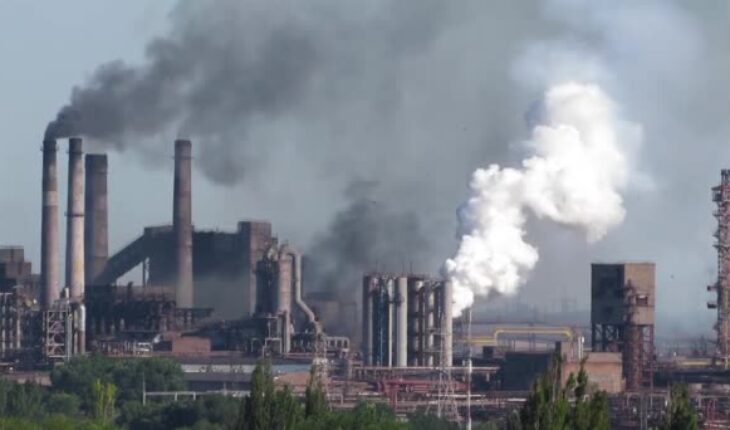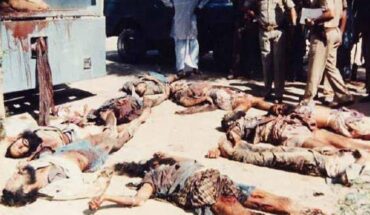Stubble burning always puts a damper on celebrations of Diwali festival for the farmers, especially residing in Punjab and Haryana. It is the harvest season for paddy just before the sowing of the next crop. Farmers have to vacate the land for the wheat showing immediately and they don’t have much time to manage the straw of paddy just harvested. In order to quickly prepare their fields for the wheat crop, many farmers simply burn leftover plant debris after harvesting rice. The practice is known as paddy stubble burning.
Due to the short period for stubble management and lack of readily available alternative means within reach of the farmers and no proper proportionate monetary help by the governments, the farmers have to adopt the old method of stubble burning. The surprising thing is that the governments do not seem seriously ready to resolve their problem, rather enforcing the farmers by inflicting the fine, depriving the farmers of MSP for the next two crops and lodging FIR against them.
While stubble burning is a compulsive need for the farmers, it has become a noose around the neck for the government also.
To control the menace of this practice by ‘Rule(stick) in the guise of Rule’, Haryana Agricultural department has issued a letter on October 17, 2024 for lodging an FIR and restricting the farmers, who burn stubble, from selling their crops in Mandis through the e-Kharid portal.
“Farmers who burn or have burnt stubble during the current season i.e from 15-09-2024, an FIR should be registered against them and a Red entry should be made in their MFMB records restricting them from selling their crops in Mandis through the e-Kharid portal during the next two seasons, says the Department of Agriculture, Haryana”.
To give another hammer blow to the farmers, recently the central Ministry of Environment has also issued a notification to double the penalty amount on stubble burning. Now, a fine of ₹5,000 will be imposed on landowners with less than two acres, ₹10,000 for two to five acres, and ₹30,000 for those with more than five acres, if they adopt the stubble burning. The governments of Uttar Pradesh, Punjab, Haryana, Rajasthan, and Delhi will be required to implement these rules.
How Polluted Air affects health?
Around the Diwali festival season, every year, a thick smoke layer covers up the sky umbrella almost in all the areas of Haryana, Punjab, Delhi, Rajasthan and Uttar Pradesh, especially the NCR region, making it very difficult even to breathe in due to the polluted air and atmosphere. Delhiites, being the most sufferers, create much hue and cry, and as the country governing authorities are sitting there, so the issue becomes more complicated and gets highlighted in all spheres. Dr Ashok Dhillon, Agricultural scientist, Ambala Agricultural Science Centre, says that due to burning of paddy residue, 70 percent carbon dioxide, 7 percent carbon monoxide along with gases like methane and nitrous oxide etc. get dissolved in the atmosphere which is very harmful for human health as well as animals.
World Health Organization (WHO), spreading awareness about the ‘CLEAN AIR FOR CHILDREN’S HEALTH’, highlights – A child, who is exposed to unsafe levels of pollution, can face a lifetime of health impacts. Exposure in the womb or in early childhood can lead to: Stunted lung growth, Reduced lung function, Increased risk of developing asthma, Acute lower respiratory infections, Impaired mental and motor development, Behavioural disorders, Low birth weight, Premature birth, Infant mortality, Childhood Cancers, Increased risk of heart disease, Diabetes and stroke in adulthood.
It adds that household and ambient air pollution cause more than 50% of acute lower respiratory infection in children under 5 years in lower and middle-income countries.
WHO further warns that in 2016, ambient and household air pollution caused 543,000 deaths in children under 5 years and 52,000 deaths in children aged 5-15 years. What a horrific crisis is hovering over the world, one can imagine easily!
Is stubble burning the sole major factor of pollution?
Punjab farmers’ front ‘Bharatiya Kisan Union Ekta Dakounda’, through its statement November 12,2024, strongly condemning orders issued against the farmers, alleged that the authorities are ignoring the ground realities and ordering coercion on the farmers who produce only 4.4% of the pollution, while 95.6% are emitted by firecrackers, diesel generators, factories and transport. Instead of taking any action against the polluters, only reports are being sought about them. According to the instructions of the National Green Tribunal, it is the responsibility of the administration to arrange for the collection, transportation and consumption of straw. Neither the administration has fulfilled its responsibility nor the courts have taken any action against the administration. On the contrary, farmers are being made the scapegoat, which is a reprehensible act.
Terming the centre government’s allegations against the farmers as unscientific claims, All India Kisan Sabha (AIKS) through its release to media on November 8, 2024, pleads that the claim that stubble burning in Punjab and Haryana is leading to air pollution in NCR is bogus, because air quality in these States, which should be more directly affected has been consistently lower than in the NCR. It is notable that vehicular pollution, pollution from factories and brick-kilns are going on unchecked and scientific studies point out that they are more responsible for the pollution in the NCR Region. AIKS adds that according to NASA’s Visible Infrared Imaging Radiometer Suite (VIIRS) data there reportedly has been a 51 per cent drop in the total number of farm fires between 2018 and October, 2024. Data shared by the Indian Institute of Tropical Meteorology (IITM) indicate that between 12th October and 21st October this year, on average stubble burning accounted for only 0.92 per cent of the PM2.5 (Particulate Matter 2.5) levels in Delhi. Clearly, the dominant reasons for the pollution in NCR are vehicular emissions, emissions from factories, brick-kilns etc.
If we analyse the NASA’s data referred by AIKS, which show that there reportedly has been a 51 per cent drop in the total number of farm fires between 2018 and October, 2024, then why the AQI of Delhi and NCR has not lowered 51 %, if the stubble burning is the sole major factor for pollution?
Why the farmers alone are made scapegoats?
Punjab governor Gulab Chand Kataria, presiding over an international conference at Punjab Agricultural University on November 12,2024, said that it was wrong to blame only farmers for the air pollution. He underscored the need for ensuring crop residue management (CRM) machinery to farmers in sufficient numbers in order to curb stubble burning incidents. “The farmer won’t give up paddy unless he is given a crop that yields more profit (than paddy). They put in so much hard work; they need profit. Farmers have no choice. They have to sow wheat in time,” he said.
Kataria added that the state government and centre have tried to make residue management machines available but it is still far from the number of machines required to deal with the issue.
The All-India Kisan Sabha (AIKS) alleges that while the urban rich and capitalists are not being fined and little is being done to regulate the proliferation of vehicles, the poor farmers are being targeted for their role in the historic farmers’ struggle against the pro-corporate Farm Acts as well as the electoral set-back for BJP in the rural areas. In fact, the farmers through Agro-forestry and protection of green cover are doing an ecological service to the nation and the BJP led Union Government is punishing them.
Former Union Minister and the General Secretary of the All-India Congress Committee, Kumari Selja, also alleges that instead of working in the interest of the farmers, the BJP government is focused on oppressing and exploiting them.
Kumari Selja adds that following strict remarks from the Supreme Court on the issue of air pollution caused by stubble burning, the central government has now taken out its frustration on farmers by deciding to double the fine for stubble burning.
In a statement released to the media, she said that stubble burning is not a recent issue; it has been happening for years. There is no doubt that stubble burning increases air pollution. The government should create a system so that farmers do not have to burn stubble.
The Aam Aadmi Party (AAP) has also strongly criticised the Central Government’s decision to double the fine for stubble burning. AAP senior leader and spokesperson Neel Garg said that the Punjab Government had sought Rs. 1200 crore from the Centre to tackle this issue and reduce incidents of stubble burning by providing financial incentives to farmers to discourage the practice. He questioned why the Centre had refused to provide this assistance if they were genuinely concerned about stubble burning?
If the Centre had provided the requested financial support, these incidents would have dropped even further. However, instead of offering help, the Centre has imposed a fine.
Haryana Agriculture and Farmers Welfare Minister Shyam Singh Rana has said that the State Government is promoting the use of straw as manure by encouraging farmers to incorporate it into their fields. He added that attributing the rising pollution in Delhi solely to stubble burning is misguided. He advised the Delhi government to implement concrete measures similar to those in Haryana.
Head of the department of climate change and agriculture meteorology of Punjab Agricultural University (PAU), Prabhjyot Kaur Sidhu, who had compiled a study on stubble burning effects in 2020, said, “Every paddy-growing state is suffering from factors adding to its air pollution. In simple terms, Punjab’s smoke is not travelling 300-400 km to choke the lungs of Delhi, rather Punjab farmers are harming their own children and brethren by setting the fields on fire.”
Will Delhi governments stop the blame game of alleging the farmers for each and every smoke particle hovering over Delhi and NCR in the name of Stubble Burning?
Jag Mohan Thaken is a Senior Journalist, Columnist & Political Analyst, views are personal






